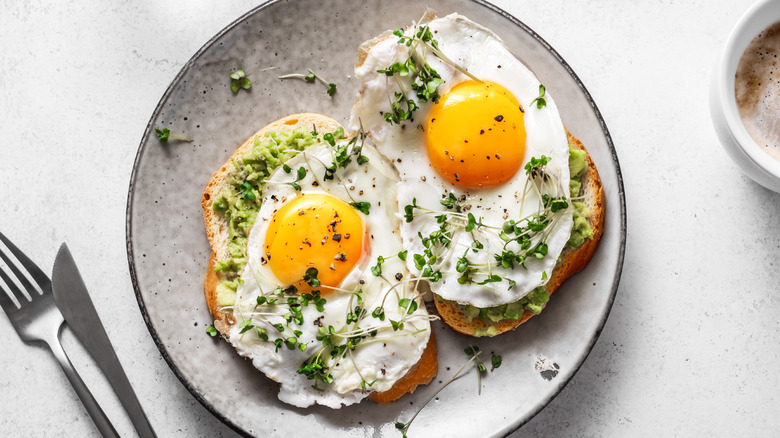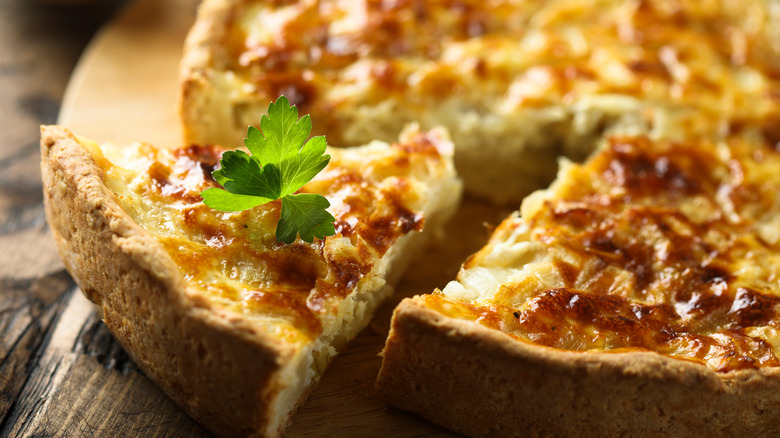The Reason You Should Avoid Freezing Cooked Egg Whites
Freezing leftovers or meal-prepped dishes is a great way to reduce waste and make food last longer. Plus, having frozen dinners on hand is super convenient, especially on busy weeknights. From rich, cheesy lasagnas to hearty, nourishing soups, there are countless meals that taste just as good reheated from the freezer as they did the day you made them.
However, as convenient as freezers are in our kitchens, it's important to know their limitations. Not every ingredient can withstand the process of being frozen and defrosted — and can cause your reheated dish to suffer from an unpleasant texture.
Cooked egg whites are one such ingredient: According to EatingWell, you should avoid freezing cooked egg whites because they will inevitably develop a rubbery consistency once they've been defrosted. Healthline echoes this point, specifically noting that you shouldn't freeze whole hard- or soft-boiled eggs, either. Even if the egg is kept intact, the whites will develop a rubbery, watery consistency once they're back at room temperature.
Why can't cooked egg whites be frozen?
According to EatingWell, the reason freezing changes the texture of cooked egg whites is pretty simple: Egg whites don't have enough fat to preserve their texture. Rather, this necessary fat is contained in the yolk. Insider, meanwhile, added that the freezing process structurally changes the water inside the egg white, leaving it "chewy" once thawed.
While you may have to abandon any hopes of storing hard-boiled eggs or egg-white frittatas in your freezer, there are plenty of other ways to freeze eggs successfully. Per Insider, raw egg whites are an ingredient that freezes well, as are raw egg yolks and whole raw eggs that have been whisked. It's also very possible to freeze cooked egg dishes, as long as the whites and yolk have been combined. As such, you should have no problem freezing and thawing your favorite quiches, baked strata, or breakfast burritos stuffed with scrambled eggs.

